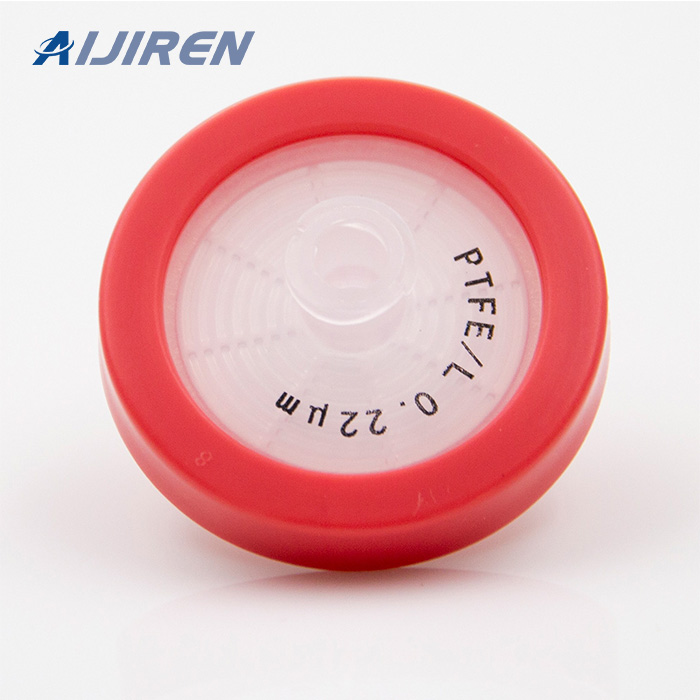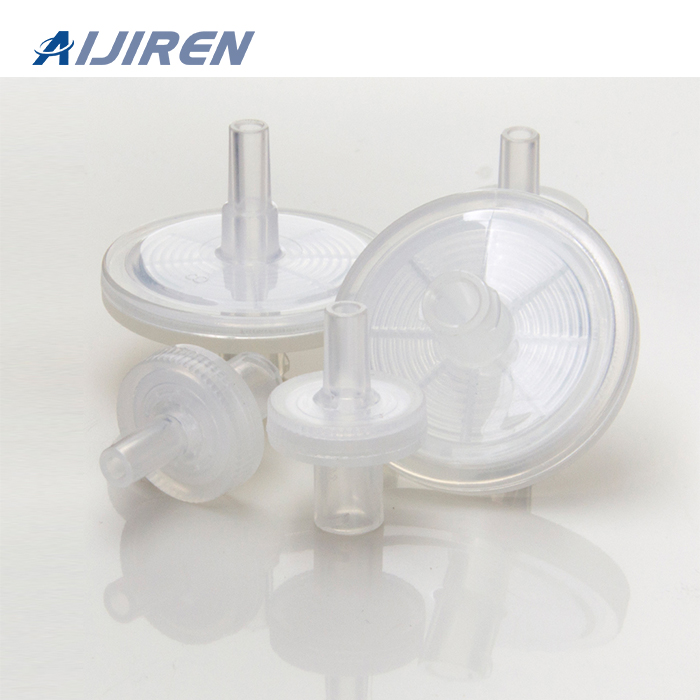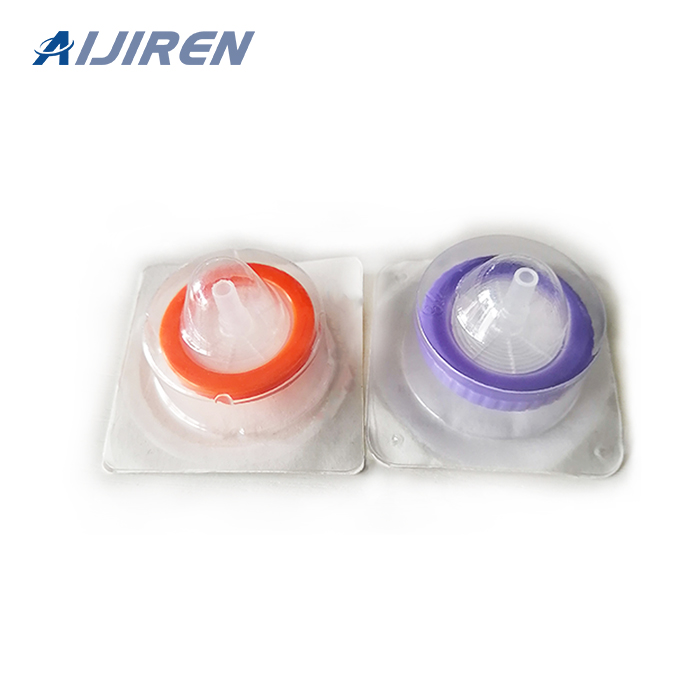


Aug 07, 2018 · Hopefully, this quick overview helps you identify the most appropriate membrane-solvent combination for your application. To compare between all the common membranes and solvents, review the chemical compatibility chart in our guide to laboratory membrane filtration principles and chemical compatibility.
GHP: GH Polypro membrane (GHP, hydrophilic polypropylene) PTFE: Hydrophobic polytetrafluoroethylene membrane on a polypropylene support Nylon: Hydrophilic nylon membrane ® membrane 2 Solvent Syringe Filters 4 mm 13 and 25 mm Syringe Filters Syringe Filters Syringe Filters Syringe Filters
1) Syringe filter housings are manufactured from solvent-resistant, low-extractable polypropylene resins specifically selected for wide compatibility with common HPLC sample matrices. 2) Solutions at temperatures up to 100°C can be filtered using syringe filters. 3) Syringe filters can be sterilized by autoclave at 125°C for 15 minutes.
testing than any other company. Our patented GH Polypro (GHP) membrane, with its uniquely broad solvent compatibility, is globally recognized as the universal membrane for HPLC sample preparation applications. Our diversified portfolio of membranes enables us to select the most appropriate materials and optimize them for each unique application.
The GH Polypro hydrophilic polypropylene membrane is ideal for aqueous solutions and offers maximum chemical compatibility for aggressive solvents. 96.5% protein recovery. GH Polypro membrane is a low protein binding membrane. It removes unwanted particulate from samples with high recovery of critical proteins.
Mar 03, 2022 · Polymer-solvent compatibility summary. Based on the membrane morphology, properties, and performance showed by the results in this work, the compatibility of the polymer with the solvent or solvent system used as diluent, bore fluid, and quenching bath is very important in the preparation of membranes via TIPS.
Pall Laboratory. of filter media: hydrophilic nylon membrane for excellent chemical compatibility with esters, bases, and alcohols, without pre-wetting; GHP (hydrophilic polypropylene) membrane for low protein binding; and hydrophilic PVDF (polyvinylidine fluoride) membrane for use in aqueous and non-aggressive,. Compare this item.
Chemical Compatibility. PES membranes were exposed to the following chemicals for 48 hours. If there was no significant change in the bubble point, strength or appearance of the membrane, it was judged compatible with the chemical. If the membrane dissolved, or otherwise lost its strength, or changed significantly in appearance, it was rated
Acrodisc® Syringe Filters. These syringe filters offer a choice of filter media: hydrophilic nylon membrane for excellent chemical compatibility with esters, bases, and alcohols, without pre-wetting; GHP (hydrophilic polypropylene) membrane for low protein binding; and hydrophilic PVDF (polyvinylidine fluoride) membrane for.
There are so many solvents and syringe filter/membrane materials that it can be tough to remember which combinations are safe and which are corrosive. These tables show the compatibilities between 5 materials (CA, nylon, PES, PTFE, and PVDF) and 75 common solvents (including acids, alcohols, and nitrogen solvents).
The Pall GH Polypro (GHP) hydrophilic polypropylene membrane offers maximum chemical compatibility. Pall GHP membrane offers low protein binding (96.5% recovery), and low extractables. Pall GHP Nanosep Centrifuge Devices can be spun at 14,000g with leak-free operation.
GH Polypro (GHP) Membrane Disc Filters. All purpose, universal membrane with maximum chemical compatibility for both aqueous solutions and aggressive solvents. Specifications. Filter Media Hydrophilic polypropylene Pore Size 0.2 and 0.45 µm Typical Thickness 0.2 µm: 101 µm (4.0 mils) 0.45 µm: 114 µm (4.5 mils) Typical Water Flow Rate mL/min/cm2at 0.7 bar (70 kPa, 10 psi) 0.2 µm: 20 0.45 µm: 31 Maximum Operating Temperature 55 °C (131 °F) Minimum Bubble Point - Water 0.2 µm: 2.9 bar
relate to a membrane that may respond almost immediately to immersion in solvent. In addition, solvent-membrane compatibility requires additional consideration of filtration-specific factors. None of these published compatibility guides, for example, monitors the solvent’s ability to wet a membrane or increase extractables. 4.
Membrane Choices GHP acrodiscs Solvent compatibility chart. ACRoDISC 13 mm 0.2 μm 0.45 μm Pack Size 100 300 1000 100 300 1000 Sample Membrane
The GH Polypro (GHP) hydrophilic polypropylene membrane offers maximum chemical compatibility. GHP membrane offers low protein binding (96.5% recovery), and low extractables. Devices can be spun at 14,000g with leak-free operation. This is only for Pall Life Sciences, Model ODGHPC34.